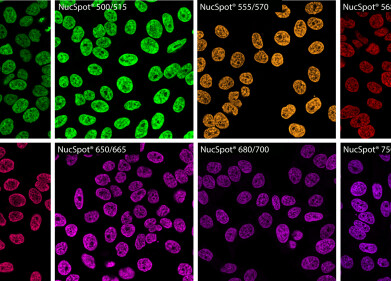-
 Teenagers could experience delayed puberty as a result of a gene
Teenagers could experience delayed puberty as a result of a gene
Microscopy & Microtechniques
'Late puberty gene identified'
Mar 25 2014
A new gene has been identified that could affect when a person goes through puberty. Researchers at the Queen Mary University of London have found a gene that could be responsible for late and early puberty. This is the first major discovery towards understanding the genetic implications of puberty and the findings are being presented today (March 25th) at the Society for Endocrinology annual BES conference.
Late or early puberty affects around four per cent of teenagers and can cause a number of different problems, including heart disease, obesity, type-2 diabetes and cancer. This better understanding of the genetic implications of this issue could help to more effectively reduce these risks within those who go through puberty late or early, possibly cutting down on disease.
The discovery was made by scientists who scanned genomes from seven families that had experienced late puberty. These genetic profiles were then analysed in order to find any specific genes that were found to be different within in the seven families, compared to the genetic profiles of people that had started puberty at the normal time.
Some 15 genes were identified that could have links to the time at which puberty takes place. These genes were then examined within another 288 individuals that had late-onset puberty. Following this examination, a single gene was found to have a common variant within a total of nine families.
According to the researchers, this gene can lead to the development of gonadotropin-releasing hormone (GnRH) neurons within the brain at an earlier than usual stage. When an individual goes through puberty, a large amount of GnRH is released, which then triggers the release of other hormones from the pituitary gland. These hormones act on the testes and ovaries, leading to the development of reproductive functions.
The delay in the development of GnRH results in the postpone in the release of the hormone, meaning that sexual maturation doesn't not occur at the normal time. If this hormone develops early, an individual could go through early-onset puberty.
Dr Sasha Howard, lead author and clinical research fellow at Queen Mary University of London, said: “Studies estimate the majority of variation in the timing of puberty is genetically determined, yet this is one of the first genes with major impact to be identified. This is an exciting finding as disturbed GnRH neuron development has never been linked to simple delayed puberty before, and may reveal a new biological pathway in the control of puberty timing.”
Digital Edition
Lab Asia 31.6 Dec 2024
December 2024
Chromatography Articles - Sustainable chromatography: Embracing software for greener methods Mass Spectrometry & Spectroscopy Articles - Solving industry challenges for phosphorus containi...
View all digital editions
Events
Jan 22 2025 Tokyo, Japan
Jan 22 2025 Birmingham, UK
Jan 25 2025 San Diego, CA, USA
Jan 27 2025 Dubai, UAE
Jan 29 2025 Tokyo, Japan


















